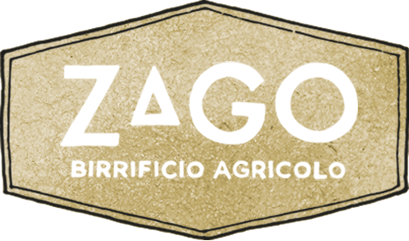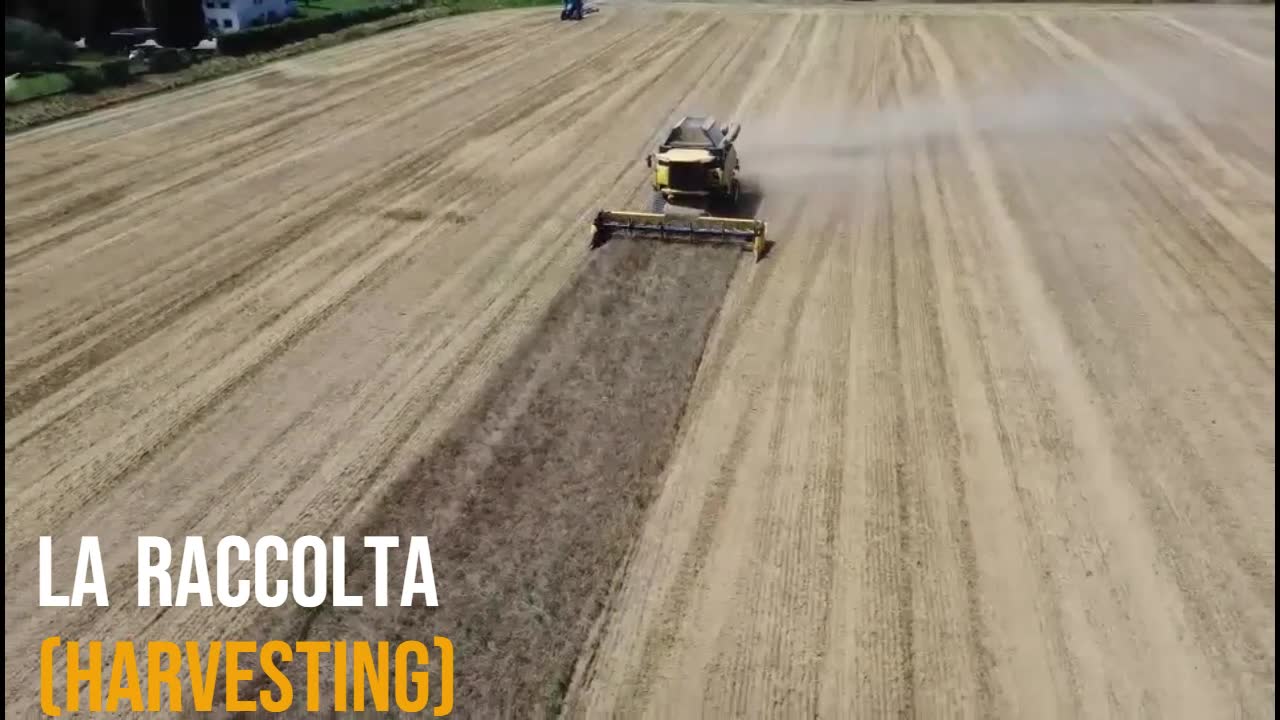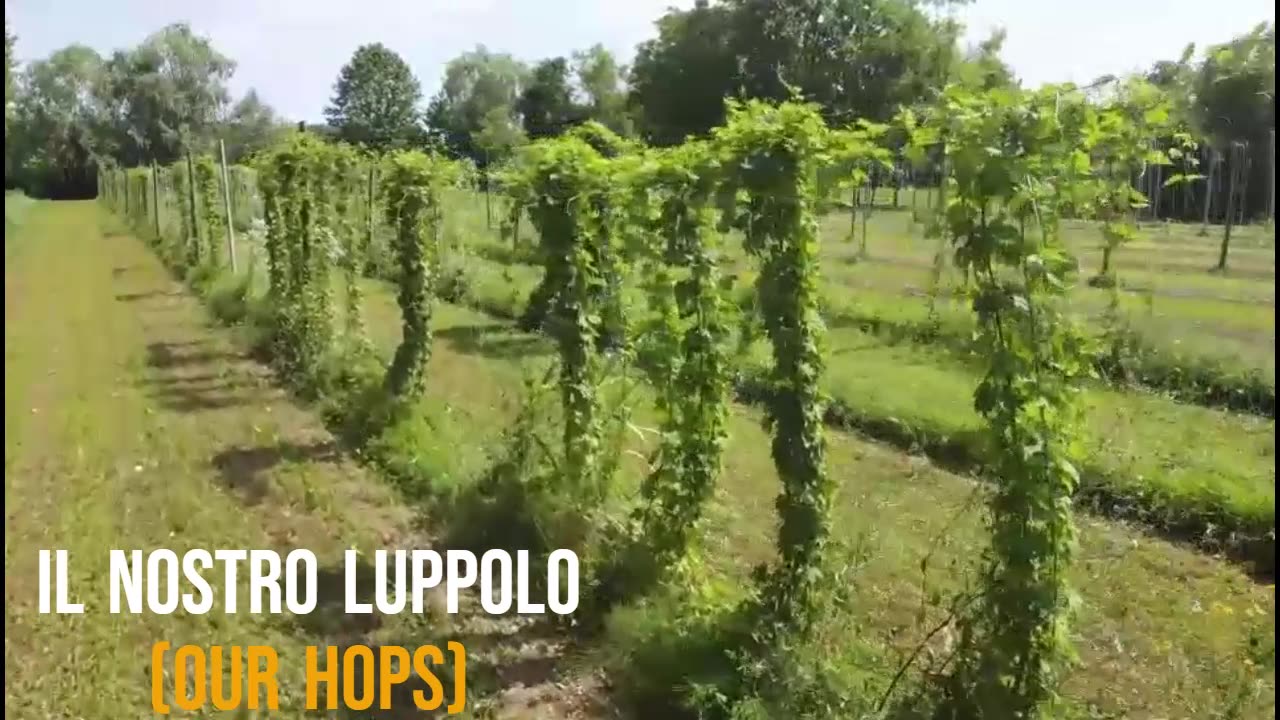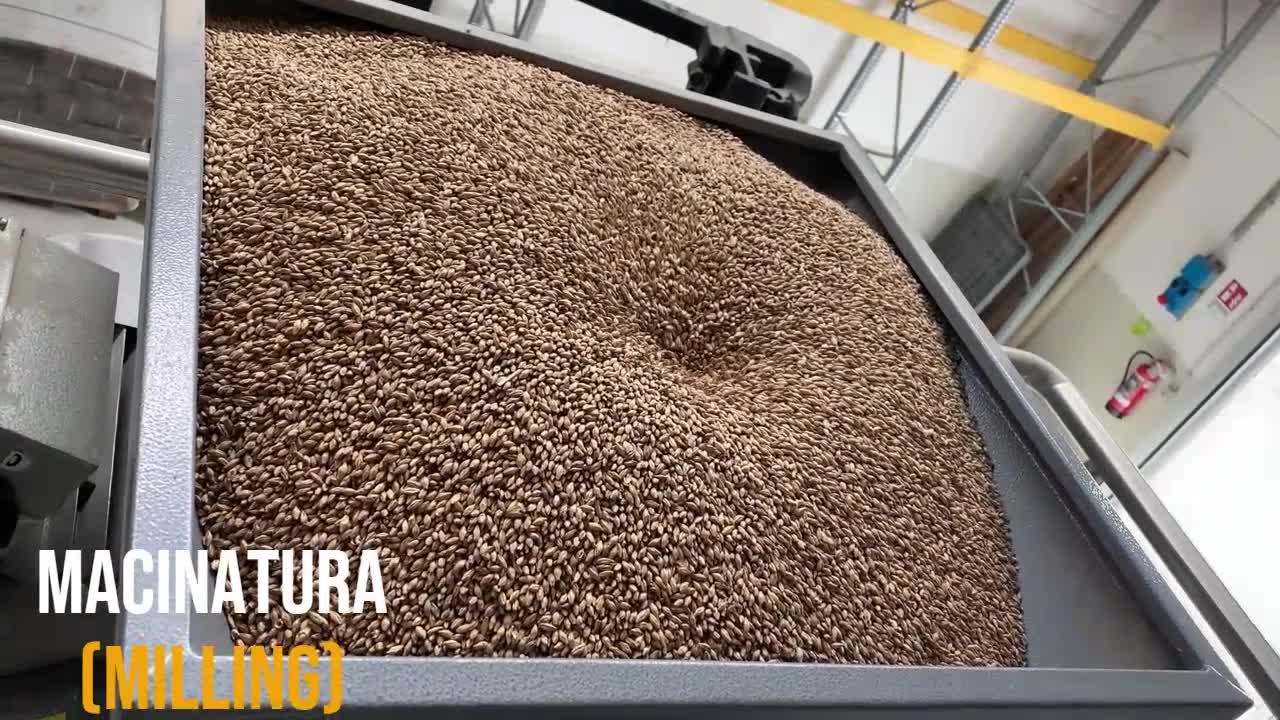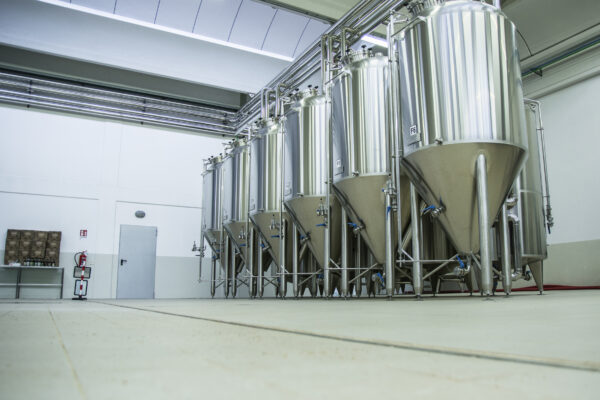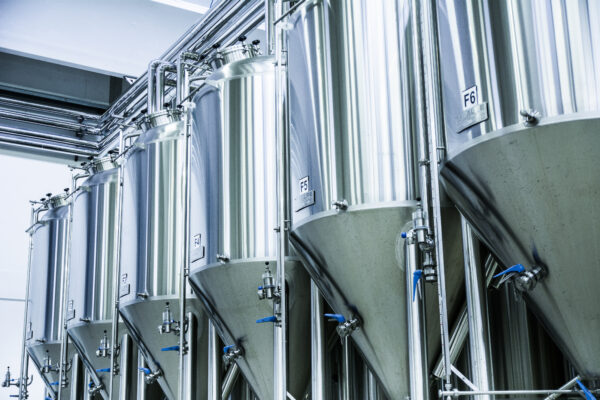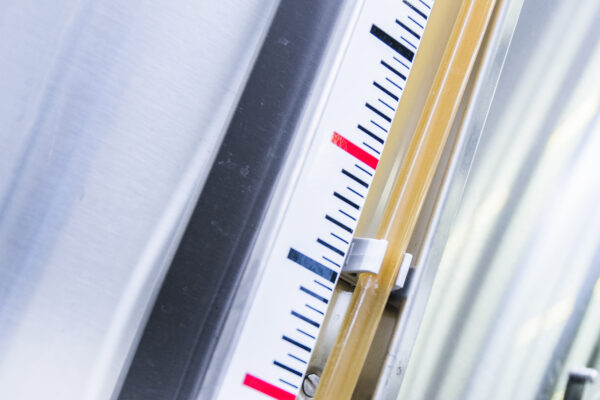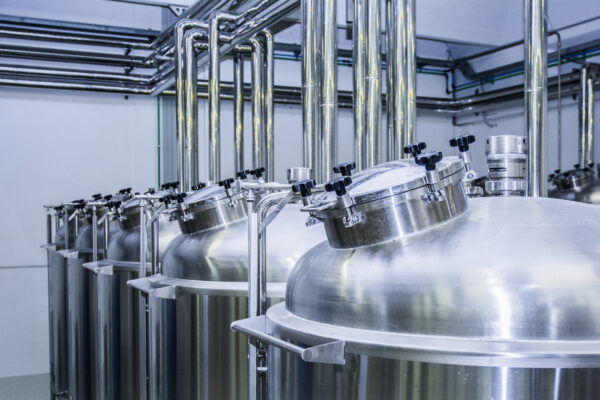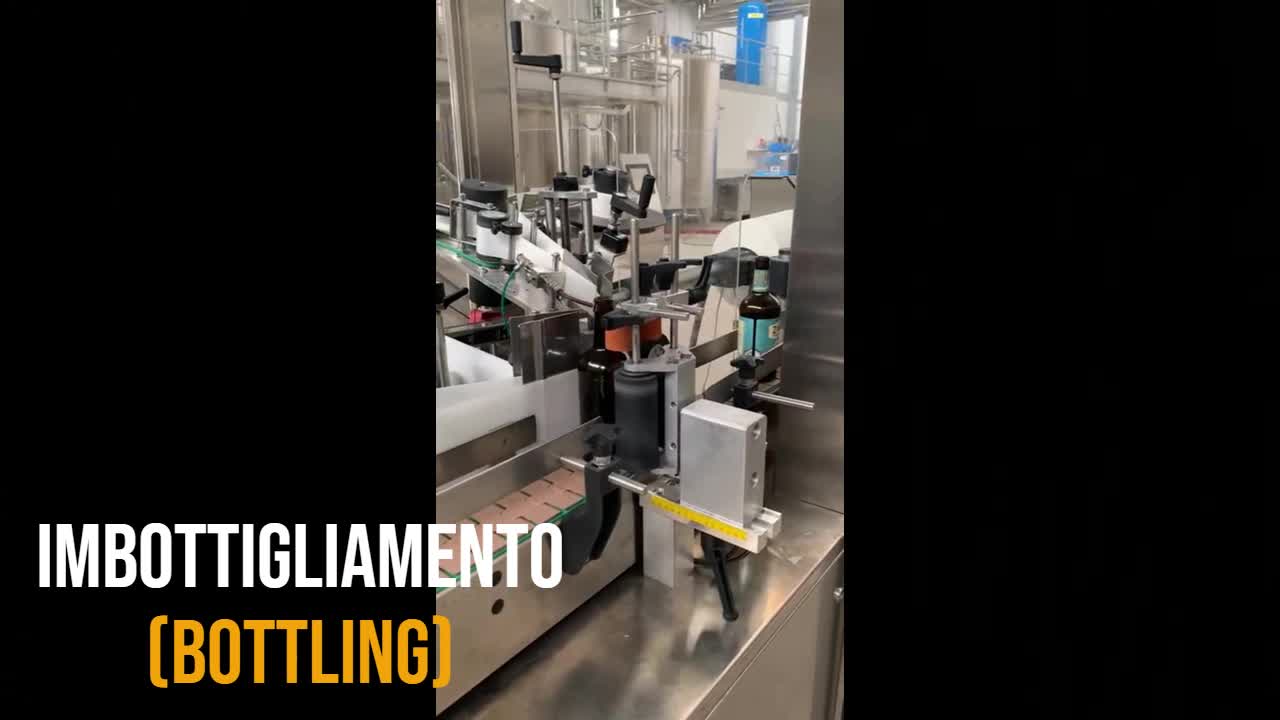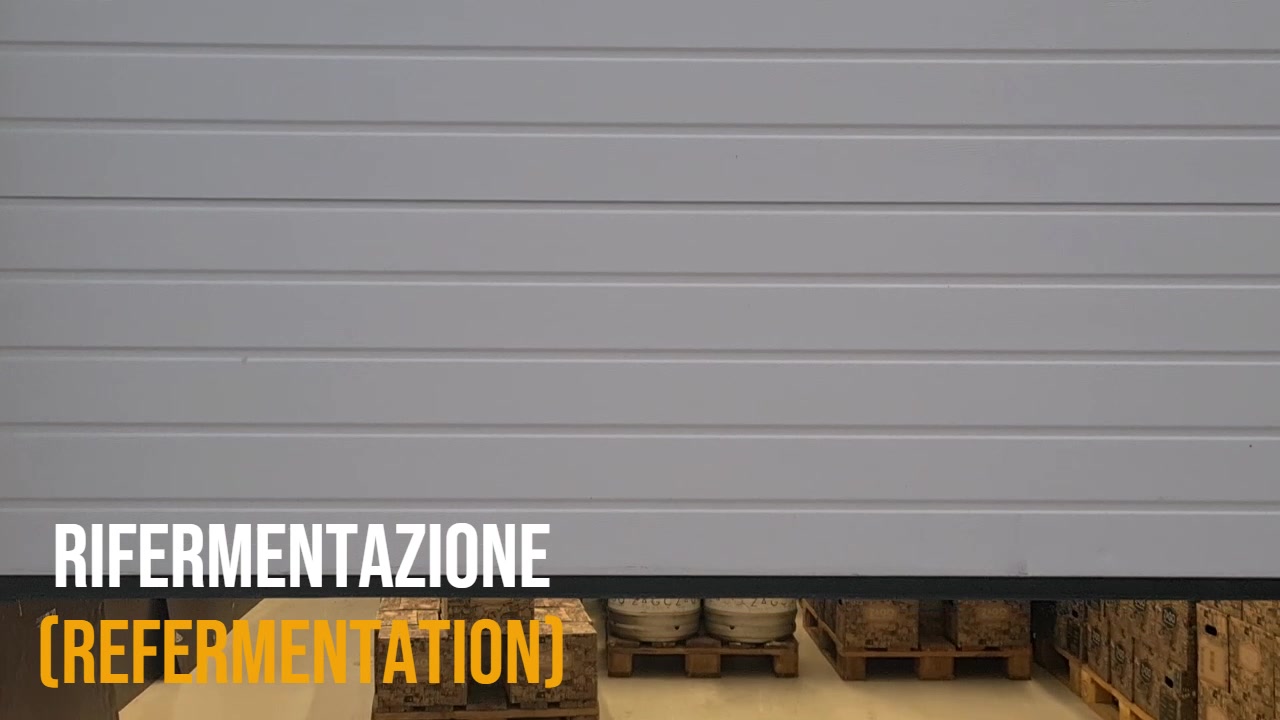The Harves
Our harvest of distichous barley, sown every year in November.
This is the main element of beer, together with wheat.
We do NOT use other cereals such as maize in our products.
After harvesting, we carefully select the best barley and wheat grains in terms of size and diameter using special grids. At this point, the selected product is ready for the malting process.
Production
All the steps needed to create our beers, depending on the recipe and temperature-controlled cycles, the different beer styles are obtained.
We start with the milling, which is done strictly on the same day to preserve the quality of the raw materials, continuing with the next stages of brewing: Mashing, Filtration where the separation between the liquid part and the grains takes place, which we reuse by providing them to local cattle breeders, which use them as food for the animals. Boiling, the last phase, the wort is heated to 100°C for an hour to sterilise the product, in the final part of the phase the hops are added, first the bittering ones then the aroma ones.
Fermentation and Maturation
Now is time for the fermentation, we decided to carry out a slow fermentation lasting about 12 days. With natural yeasts, to not speed up this process.
Excess yeast is then purged by gravity and the beer transferred to cold maturation tanks, 2°C.
At this stage, according to recipe, some beers undergo the Dry Hopping process. Maturation, in both cases, can vary from 15 to 30/40 days.
Bottling
Now the beer is ready! To get it to your tables or counters, we have come to a crossroads: either we package it in bottles or in kegs.
First of all, careful sanitisation of the entire filling line is mandatory. We use Isobaric machines, which allow double evacuation in a protected nitrogen atmosphere, and rinsing for thorough cleaning.
Refermentation
Not everyone does it, but for us it is an added value, what does it do?
It allows us at the bottling stage to insert a small amount of sugar (we have chosen to use sugars derived from cereals, dextrose, and not refined sugars or glucose syrups) and refermentation yeast.
This process lengthens the time and increases the costs, by 15 days where the beer is kept at a controlled temperature of 22°C, but it allows us to have a product with a self-produced bubble, which is therefore more natural and digestible, and the product remains LIVE, since our philosophy is to produce beers that are neither microfiltered nor pasteurised.
